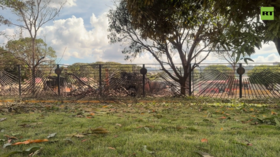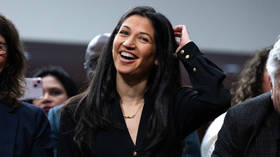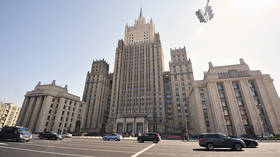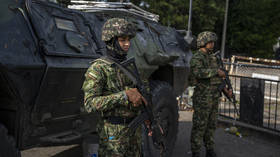British Army’s first transgender officer plea: Don’t ‘sensationalize’ her story
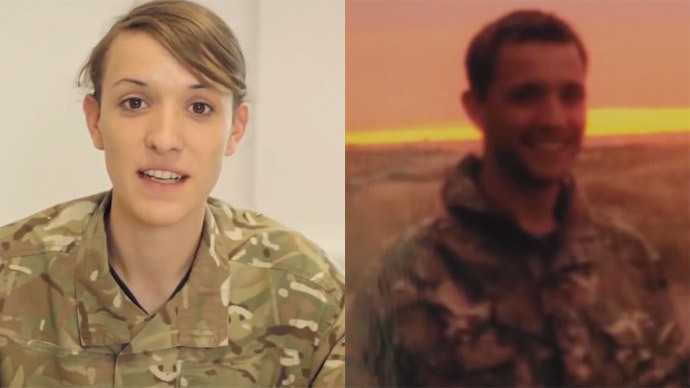
After a long gender identity battle, a UK soldier has become the first openly transgender officer to serve in the British Army. Activists, however, argue gender transition is normal, urging the media not to “sensationalize” her story.
Captain Hannah Winterbourne, who was born a boy, has revealed her transgender identity after claiming she was living life “as an act.”
An officer in the Royal Electrical and Mechanical Engineers, Winterbourne manages 100 soldiers. Now the highest-ranking transgender soldier in the British Army, she claims becoming a woman was “harder than fighting in Afghanistan.”
“In Afghanistan I was living an act, I was acting for everyone around me,” she said.
The captain refuses to reveal her former male name to the media as she described it as a “label from her past.”
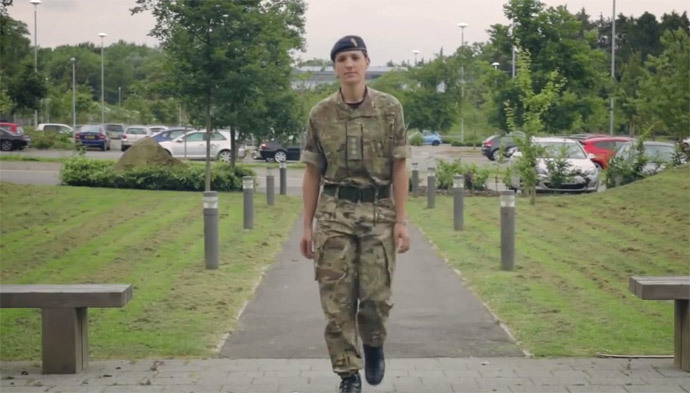
Winterbourne, who was “nervous about what people would think,” said she believes it was “a bit of a shock” to some people, as it is not something they would have expected in the army.
Her confidence as a woman grew once people realized her sex change “didn't make a difference” to her performance at work.
“At the end of the day, I can still do all the things I could do before I transitioned,” she said.
Despite the challenging transition, Winterbourne remains eager to excel in her army career as she pursues further promotion and aspires to become a “senior trans role model.”
“The British Army is a fantastic employer for trans soldiers.” She said its policies allow employees to “get on with being soldiers, rather than being trans soldiers.”
Jennie Kermode, Chair of Trans Media Watch, told RT: “We're glad that Captain Winterbourne has a positive story to tell and we hope it will inspire more transgender people to feel confident about living openly.”
Kermode also praised the British Army for the “good policies” they have in place to help those seeking transition.
However she said that she hopes the media will avoid “sensationalizing” this case to allow Winterbourne to focus on her job.
“Many people transition at work these days and we look forward to a time when it is no longer seen as big news,” she added.
Winterbourne’s case may not be treated as sensitively by armed services elsewhere in the world.
The US Army has faced outrage from LGBT activists over its treatment of Chelsea Manning, who was denied the right to transition while in custody for leaking military secrets to WikiLeaks in 2010.

In order to begin hormone replacement therapy, Manning may be moved from Fort Leavenworth, Kansas to a civilian prison to serve her 35-year incarceration. She and her network of supporters continue to lobby the Department of Defense for her gender realignment.
In Gary Gates and Jody Herman's 2014 study on Trangender Military Service in the United States, the authors said: “Transgender individuals who wish to join the US armed forces are prohibited from doing so if their transgender status is known.”
Moreover, they said if a transgender case is suspected, the officer could be “medically discharged.”
Stephen Peters, a writer for the Human Rights Campaign blog, believes gender identity discrimination in the US Army is “humiliating.”
Despite demoralizing stereotypes of what a “hegemonic male” is assumed to be in the army, Captain Winterbourne's case indicates significant institutional reform in the culture of the British forces.



